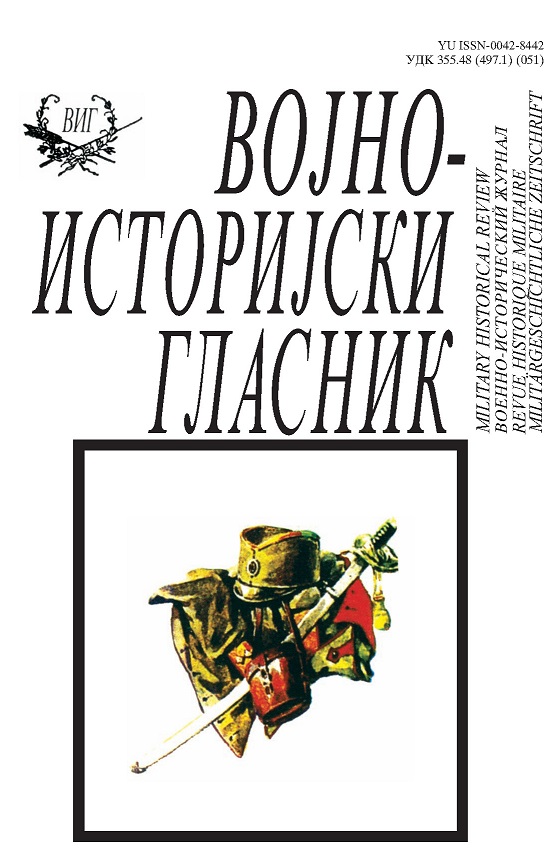Покушај стратешког ослонца Југославије на СССР 1939-1941.
Yugoslav Attempt to Achieve Strategic Reliance on USSR 1939 – 1941
Author(s): Mile BjelajacSubject(s): Governance, Military history, Political history, Recent History (1900 till today), International relations/trade, Military policy
Published by: Institut za strategijska istraživanja
Keywords: Yugoslavia; USSR; 1939-1941; strategic reliance; military strategy; military alliances;
Summary/Abstract: Strategic military alliances are not qualified by ideological, religious, ethnic, economical or cultural reasons nor old enemities or alliences but mainly by primal national intereses, esspecially when the survival of the unitty is at stake. These were the guidings of Yugoslav military and state leadership in its rotation towards the USSR, esspecially after the French surender. After the Anschluss in 1938, one group of most outstanding Yugoslav generals (Zivko Pavlovic, Vojin Maksimovic, Milan Nedic and others) estimated that the stretegic situation for Yugoslavia will be more difficult than during the WWI because UK and France wouldn`t be capable to stop German divisions. Italians would make impossible Yugoslavs to be supplied. They appealed on state leadership to make new strategic steps. Generals Milan Nedic and Petar Pesic as defence ministers and general Petar Kosic as chief of General staff participated in attempts to achieve strategic cooperation in form of allience and in provision of lacking armament and raw materials from the USSR. General Dusan Simovic was also supporting this cooperation with the USSR all away from the early 30`s. His comrade and new minister of defense in government of 27th of March started the most intensed negotiations about allience. Because of some revizionistic attempts of distortion of Serbian history in modern French historiography it si useful to remind that king Alexander has strongly supported French politics of military and strategic cooperation with USSR in order to preserve the peace in Europe. This is confi rmed in French sources of the highest level. Also, with this paper we are correcting some prejudices and simplifi ed ideological interpretation in decrepit socialist (communist) about military and state leaders from that period. Sometime “traitors” and “enemies of bolshevism” are shown in totaly different light. Military leaders actually hoped to procure aproximately 800 airplanes with spare parts and ammunition from USSR. Later om, during the nogotiations and with more realistiv approach total number was reduced to 300 and number of tanks and armoured vehicles to 100. Also were requested 200 anti-aircraft guns, ammunition, spare parts 30 000 tons of air plane gasoline, 4 000 tons of coil for the navy, radio-stations, ponton bridges and raw materials for weapon industry. In preparations for this operation, which took part in February of 1941 also was prepared complete transport plan from harbours Odessa to Thessalonica as well throuh the Danube. Immediatelly after Soviet side became mute. “April war” overtook Yugoslav army without enough of modern weaponry, strategically surounded and with two weak allies from previous war - UK and Greece.
Journal: Vojnoistorijski glasnik
- Issue Year: 2006
- Issue No: 1-2
- Page Range: 41-66
- Page Count: 26
- Language: Serbian

